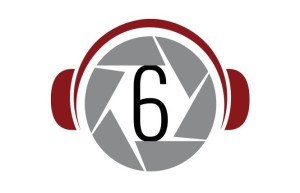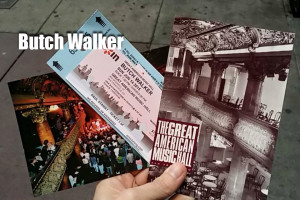Racism: America Through The Eyes of a Minority
5 min readI was once approached by a friend of mine who asked me, “How does every racist joke start?” I replied that I didn’t know. He then said, “Like this…” as he looked over both shoulders and laughed. I laughed too because I had been there and done that. I think I laughed, mostly, because I felt I had a right to laugh. I come from a mixed heritage.
I had, in many ways, grown up with a kind of happy racism in my family. My stepfather, who is Caucasian, would often make jokes about Asians who couldn’t see or drive cars. My mother, who is Asian, would often talk about the crazy white trash people who brought dog crap (that they might have unknowingly stepped in) into their homes simply because they kept their shoes on indoors. It was a friendly, lighthearted cycle of “white trash” jokes pitted against bad Asian driving jokes. And for the most part, my youth was filled with a good-natured view of subtle hatred. And I say it’s subtle because the jokes focused on traits more than they focused on people.
For the longest time, I saw nothing wrong with this because I was a part of the great experiment. I was a product of what I would learn in elementary school was “the melting pot.” Even with all the melting pot ideas that I was exposed to as a youth – values that this country was supposedly founded upon – I still wonder whether or not people are right about there being two Americas: White America and the rest. Maybe. But I would take this a step further. While people may not always outwardly express their hatred of one another, I have been alive long enough to be a victim of racism from both sides of the cultural fence. The bad news for some Americans is that racism is still alive and well in this country. Sometimes, all it takes is something like a hurricane to remind us of this.
So there I was a couple of weeks ago watching the first of many telethons that was promising to give aid to those in need. In a way, even though we were watching real life tragedy unfolding in front of us, the station’s effort to entertain us was rather pedestrian if not disappointing. The show featured a few Country artists, a few celebrities, but they were mostly on the bottom of the “A” list. Yes, well known artists, but nothing special – Harry Connick, Jr and others, but no Bono…not yet. Strangely, it would be another artist not named Bono that would ramble on about racism in America and make the news.
Kanye West, through his jumbled mess of an outcry, said things that stuck with me. While his message might have been confusing, his heart was in the right place and it wasn’t that “Bush hates black people.” The real message was that racism is alive and well in 2005. That’s a scary thought. But is it really true? All I had to do was look back on my life to see it. It’s always been there, interwoven through the fabric of my memories. Somehow, I had repressed it. I had treated it like several isolated incidents. But were they isolated, or were they simply the reality that I chose to ignore?
When I was a kid, I naively thought that racism was something that belonged in history books, sort of like “that crazy thing that people did to one another once upon a time” before we truly understood each other. For me, racism belonged with concepts like “Holocaust” and “Hitler.” And these were things, in this country, that I had somehow always assumed ended with Martin Luther King Jr. and others who fought to give all minorities their freedoms. But, like anything else, there’s always an ebb and flow of acceptance and rejection of concepts like “all men are created equal.”
I was 13 when I first experienced my first act of what I would label textbook racial hatred. I was sitting in a car with my Asian uncle waiting for a stoplight to turn from red to green, when there it was in the form of two white men in the car next to us – pure hatred. I innocently looked over and noticed that the man in the passenger seat was giving me the “one way sign” and it was not intended to point me in any direction. At first I thought it was simply a misunderstanding until the guy in the driver’s seat was giving me the same sign. When the light turned green, the man in the passenger seat left us with a present as he spat at the window while they raced away. That was in 1987, approximately 20 years removed from the civil rights movements of the 60s but close enough to know that not much had changed. It’s just that people get better at hiding it (or in our case, doing our best to ignore it).
It wasn’t until the night of the telethon that I had given that and others incidents more thought. There were many incidents. I just treated them like isolated events. A conversation I once had with a friend came racing back. “Do you really think that things can change in less than a generation?” Can they? Did it change when I was confronted in a parking lot by a man who didn’t want to wait for my car to be towed? We were blocking him in, true, but he was nice enough to remind me that he had things to do and that we were costing him time. I asked him what he had to do and he said, “I have to go to work and take care of foreigners like you.” I was born in Texas. Even more bothersome was that the incident took place in 2002.
Had we evolved as a people as little as two years ago? While I sat in a Denny’s, I listened to a lady explain how an Asian child was just not as smart as the other children. This Asian girl had been taught to take off her shoes; the habit had somehow extended to school and that wasn’t appropriate. The lady was proud to explain that she was in the process of re-educating this poor Asian girl who was just “slow.” This lady was a teacher and the year was 2003!
Can things change in a generation? I don’t know. Somehow, I don’t think so. All I have to do is look as far as these incidents to make me wonder.
Most days, I don’t give my ethnicity a second thought. Who really does? There are so many other things in life that seem much more important than whether or not people suffer racial injustices since most of us don’t fixate upon where we’re going, much less where we came from. But I’m sensitive to racial issues, now more than ever, because I have to live with it. Even during the best of times, I still wonder if racism, even passive racism (or good-humored racism), shouldn’t be seriously examined. If you have to look over your shoulders to tell a joke, is it really a joke that needs to be told?






